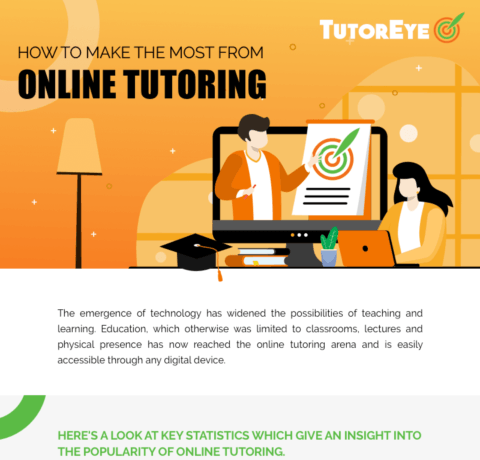Top Ways to Build Confidence with a Stats Tutor
Wiki Article
Comprehending the Difficulties: Why Students Discover Stats Difficult and Exactly How Tutoring Helps
Data offers numerous challenges for pupils. The complexities of fundamental principles, coupled with intricate terms, often result in misunderstandings. Misinterpretations can originate from cognitive biases, particularly in differentiating correlation from causation. Individualized tutoring arises as a practical service, offering customized instruction that addresses specific finding out needs. As trainees navigate these hurdles, they might find that the right assistance can transform their understanding and attitude in the direction of the topic. What other benefits might this method offer?The Intricacy of Statistical Principles
Although statistical ideas are vital for data evaluation, their complexity typically presents considerable difficulties for students. Many trainees battle to grasp fundamental concepts such as possibility, circulations, and hypothesis testing. These principles call for not only mathematical abilities but additionally an understanding of their real-world applications, which can be unintuitive and abstract. Using jargon and technological language even more makes complex the learning process, making it tough for pupils to link theory with technique. In addition, the interplay between different analytical methods can lead to confusion, particularly when identifying the ideal strategy for an offered dataset. As students try to navigate these complex concepts, they might come to be overloaded, leading to frustration and disengagement. This complexity demands reliable teaching techniques and helpful sources, such as tutoring, to aid pupils develop confidence and accomplish a much deeper understanding of data. Acknowledging these challenges is the primary step toward assisting in far better educational results in the area.Difficulties in Information Interpretation
Information analysis presents significant obstacles that can hinder precise evaluation and decision-making. Students often battle to attract significant conclusions from information due to a lack of knowledge with different statistical techniques and tools. Misconception can occur from the overwhelming quantity of details, leading to complication about which metrics matter. In addition, cognitive biases might shadow judgment, causing pupils to favor data that validates pre-existing beliefs instead of reviewing details objectively.Another difficulty lies in identifying connection from causation, a critical principle that can skew understanding of partnerships within data collections. In addition, the visual representation of information, such as graphs and charts, can often misguide if not interpreted properly, causing inaccurate verdicts. These barriers underscore the significance of creating strong information interpretation abilities, as they are vital for making educated decisions in both real-world and scholastic contexts. Efficient tutoring can supply the advice needed to conquer these obstacles and foster greater understanding.
The Role of Chance in Data
How does possibility form the foundation of statistical evaluation? Chance acts as a vital device in data, permitting researchers to make inferences about populations based upon sample data. By quantifying unpredictability, chance enables statisticians to approximate the likelihood of different outcomes, promoting decision-making procedures. For example, chance circulations, such as the regular circulation, offer important structures for understanding information actions and irregularity.Principles like theory screening rely greatly on chance to determine the value of outcomes. This interaction between probability and data assists in assessing the validity of cases and leading more study. Comprehending probability is essential for interpreting analytical results properly, as it assists to contextualize searchings for within their wider unpredictability. A strong grasp of chance concepts outfits pupils with the analytical skills required to tackle intricate statistical obstacles, cultivating a much more extensive comprehension of the subject matter.
Usual Misconceptions About Statistics
What are some common misconceptions that often cloud the understanding official statement of data? Many individuals wrongly think that data merely includes numbers, overlooking its theoretical foundations. Some presume that a small sample size can produce dependable verdicts, ignoring the relevance of representative data. Another common misconception is the belief that relationship indicates causation, resulting in wrong interpretations of relationships between variables. Furthermore, several pupils think that statistics is entirely regarding calculations instead of recognizing its duty in information interpretation and decision-making. Others might watch stats as an inflexible discipline, stopping working to value its versatility in numerous contexts. Misconceptions about statistical significance, such as equating it with useful importance, also add to complication. These misconceptions can impede students' ability to grasp statistical principles successfully, typically causing aggravation and stress and anxiety when engaging with the topic. Addressing these misconceptions is vital for promoting a more detailed understanding of data.The Benefits of Individualized Tutoring
Customized coaching offers significant benefits for trainees battling with statistics, as it customizes instruction to specific discovering styles and demands. This customized strategy allows tutors to identify details areas of trouble and adapt their training methods appropriately. By concentrating on the distinct obstacles each trainee deals with, customized tutoring fosters much deeper understanding and retention of statistical principles.Additionally, individually communication gives trainees with the chance to ask questions easily and get prompt feedback, boosting learning performance. Individualized tutoring also aids develop self-confidence, as students development at their very own pace without the pressure of a classroom atmosphere.

Regularly Asked Concerns
What Previous Knowledge Is Needed Prior To Researching Stats?
Prior knowledge in basic maths, including algebra and math, is important before studying statistics. Familiarity with concepts such as functions, data, and AP Statistics Help variables interpretation greatly enhances understanding and application of statistical concepts in real-world scenarios.Exactly How Does Modern Technology Effect Learning Stats?
Innovation boosts discovering data by offering interactive devices, simulations, and visualizations that clear up concepts. On the internet platforms make it possible for collaborative discovering and accessibility to sources, fostering a much deeper understanding of statistical methods and encouraging interaction among pupils.Are There Specific Study Methods for Learning Data?
Reliable research strategies for mastering statistics include active method with analytical, using visual aids, forming study groups for collaborative discovering, and using real-world instances to improve understanding and retention of statistical concepts.What Professions Require Strong Statistical Abilities?
Professions needing strong statistical abilities include data analyst, statistician, actuary, market scientist, and epidemiologist. These occupations utilize statistical methods to translate information, inform decisions, and resolve complicated problems across various industries, improving overall analytical capacities.Exactly How Can Group Research Procedure Assist With Data?
Group research study sessions boost understanding of stats by promoting collaborative analytic, making it possible for diverse point of views on complex principles, and promoting a helpful atmosphere where students can make clear questions and reinforce finding out with discussion and shared sources. AP Statistics Help.
Report this wiki page